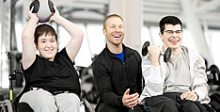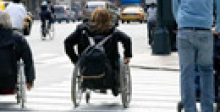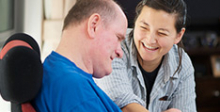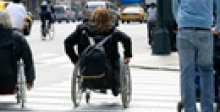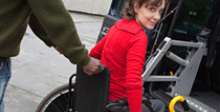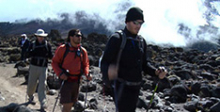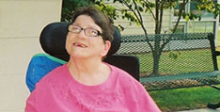About this stage of the journey

ADULTS
Adults with cerebral palsy often face a number of choices as they grow into adulthood, and their ability to adapt and adjust to change is something that is cultivated by a series of interventions when they are young. If a child is properly prepared, he or she can lead a life that is rewarding, joyful, and productive.
Have questions? Need guidance?
Call (800) 692-4453 today!
for MyChild™ Call Center Assistance.
Learn more.
Helpful suggestions:
- Apply for Supplemental Social Security Insurance, or SSDI.
- Apply for Medicaid and Medicare benefits, if you qualify. Ask about the Medicaid Waiver program.
- Secure housing; rental waiting lists may apply.
- Consider attending college.
- Take advantage of workforce development programs that provide skill assessment, job training, career planning, job hunting, and career development opportunities.
- Learn to manage finances in order to live affordably, manage service supports, and plan for future contingencies.
- Consider personal care assistance, service animals, companion supports, home care service supports and other community supports which allow for greater independence.
- Seek community supports and funding opportunities.
- Seek government benefits and services supports with nutrition, energy assistance, home modifications, vehicle conversions, temporary cash assistance, and more.
- Create healthy lifestyle habits; eating healthy, obtaining the proper level of rest, and participating in fitness and exercise.
- Pursue interests, even if you require assistance from occupational or recreational therapists to accommodate, modify and adapt in order to participate.
- Embrace opportunities to socialize and develop meaningful relationships, including dating, marriage and creating a family.
- Employ standards for safety and personal protection as well as emergency preparedness. Have a plan of action for any foreseeable natural or accidental contingencies.
- Participate within your community. Volunteer, mentor and assist others. Giving back is rewarding and empowering.




